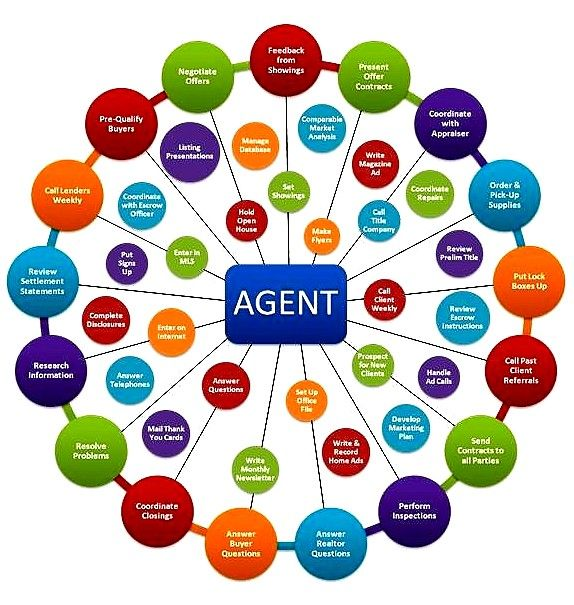Leading Franklin TN Real Estate Agents Offering Professional Support
Leading Franklin TN Real Estate Agents Offering Professional Support
Blog Article
Comprehending the Secret Differences In Between a Real Estate Professional and Realty Professionals for an Effective Residential Property Purchase
Browsing the intricacies of property transactions requires an understanding of the distinctive roles played by Realtors and genuine estate representatives. Both are certified professionals, the subtleties in their certifications and moral obligations can considerably affect the result of your property negotiations. Realtors, bound by the rigorous code of principles of the National Association of Realtors, assure a level of integrity that may not be guaranteed with all genuine estate agents. With the potential to effect openness and settlement effectiveness, picking the ideal professional becomes a crucial choice. But what other aspects should be taken into consideration for a seamless deal?
Specifying Real Estate Agents and Agents


In the genuine estate market, distinguishing between a Realtor and an actual estate representative is essential for recognizing their distinctive roles and credentials. A real estate representative is a specialist that has obtained a certificate to help purchasers and sellers in real estate deals.
On the other hand, a Real estate agent is a qualified real estate representative that is likewise a participant of the National Association of Realtors (NAR) While all Real estate professionals are genuine estate representatives, not all actual estate agents are Realtors, making this difference necessary for customers looking for an expert with a dedication to honest techniques.
Licensing and Qualifications
Obtaining a property certificate is the fundamental step for people desiring come to be either a realty representative or a Real estate agent. Elizabeth Leanza Synergy Realty Realtor. This process commonly includes completing a set variety of pre-licensing educational hours, passing a state-administered examination, and fulfilling any type of added state-specific needs. The educational curriculum usually covers vital subjects such as property concepts, home regulations, contracts, and financing, gearing up candidates with detailed sector knowledge
While all Real estate professionals are realty agents, not all realty representatives are Realtors. The distinction hinges on the added qualifications that Realtors have. To become a Real estate professional, an accredited real estate agent must join the National Organization of Realtors (NAR), which calls for adherence to a strict set of standards and completion of additional education and learning. This subscription is not a requirement for practicing as a property representative, yet it offers enhanced professional trustworthiness and access to a vast network of genuine estate professionals.
Moral Specifications and Codes
Promoting honest criteria is a foundation of expert technique in the realty industry. These criteria set apart a Realtor from a basic property agent, impacting just how they carry out service. Realtors, participants of the National Association of Realtors (NAR), comply with a rigorous Code of Ethics, established in 1913, which mandates honesty, integrity, and professionalism and reliability. This code includes 17 short articles focusing on tasks to clients, the public, and various other Realtors, covering problems like customer privacy, truthful advertising, and reasonable treatment.
In contrast, realty representatives should adhere to state licensing legislations, which offer a baseline of ethical behavior yet might not be as extensive or a knockout post strict as the NAR's Code of Ethics. While agents are obligated to operate legally and relatively, the absence of a widely applied ethical code can result in irregularity in method requirements.
For consumers, recognizing these distinctions is essential - Elizabeth Leanza Synergy Realty Realtor. A Real estate agent's dedication to a greater moral criterion can offer extra assurance of professionalism and trust and accountability. When choosing in between a Real estate agent and a property representative, acknowledging the significance of ethicalities can lead clients towards a specialist that lines up with their expectations for honest conduct in residential property deals

Effect on Purchases
Understanding the ethical standards that Realtors stick to supplies a foundation for examining their effect on property transactions. Realtors, as participants of the National Organization of Realtors (NAR), are bound by a rigorous Code of Ethics, which dramatically affects their communications and arrangements in residential or commercial property deals. This adherence to honest practices ensures transparency and integrity, promoting Homepage count on in between all parties entailed. Such trust is important for an effective purchase, as it can improve interaction and assist in smoother negotiations.
The Real estate professional's dedication to moral criteria converts into an extra expert and trusted solution, typically resulting in quicker and much more efficient deals. Their commitment to act in the best interests of their clients can lead to better results, such as protecting beneficial terms or determining prospective issues early at the same time. Additionally, Real estate professionals are outfitted with comprehensive market understanding and sources, enhancing their ability to navigate complex deals adeptly.
On the other hand, realty agents who are not Realtors might not be bound by the exact same rigorous moral guidelines. This distinction can affect the transaction process, possibly presenting irregularity in service top quality and client contentment degrees. Elizabeth Leanza Synergy Realty Realtor. Ultimately, the influence of a Real estate agent's ethical commitment can be considerable, advertising positive experiences and successful home purchases
Choosing the Right Professional
Choosing the ideal genuine estate specialist is a crucial step in making sure a successful residential or commercial property transaction. The option between a Real estate agent and a real estate representative hinges on numerous aspects, consisting of the certain requirements of the purchase and the level of competence called for.
On the other hand, realty representatives that are not Realtors can still use high levels of service and competence. Their skills and experience ought to be examined based on their record, local market expertise, and client reviews. When choosing between these specialists, consider their familiarity with the sort of residential property included and their arrangement abilities, which are vital for achieving desirable terms.
Inevitably, the decision needs to be informed by comprehensive research study and personal interviews to evaluate compatibility and interaction style. This makes certain that the picked professional aligns with the customer's goals and expectations, estate agent broker paving the way for a seamless building deal.

Conclusion
In recap, identifying between Realtors and property agents is necessary for browsing home transactions successfully. Realtors, as participants of the National Organization of Realtors, abide by a rigorous code of ethics, ensuring higher responsibility and fostering depend on. This commitment to honest requirements boosts interaction and settlement processes, bring about a lot more reliable purchases. Picking a Realtor can substantially enhance the total experience and self-confidence in the acquiring or selling process, eventually adding to more effective building transactions.
Report this page